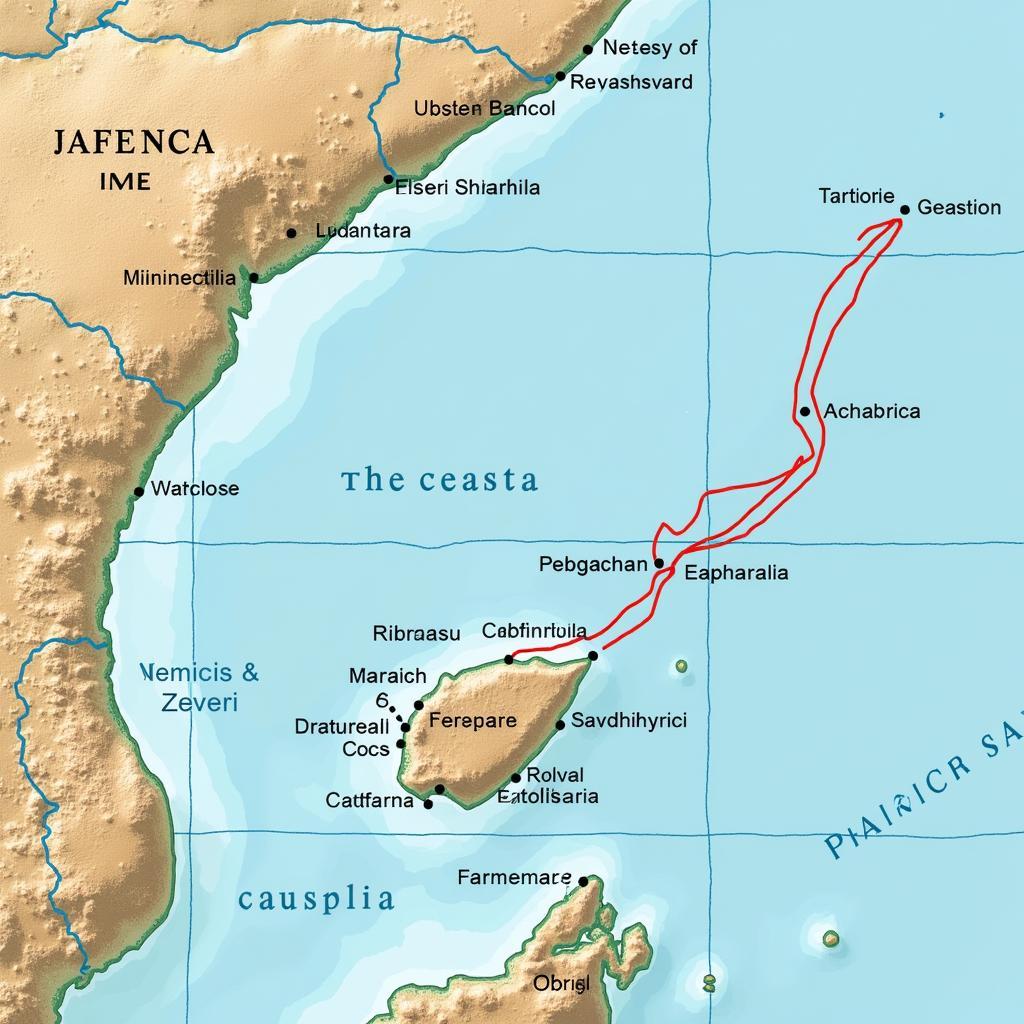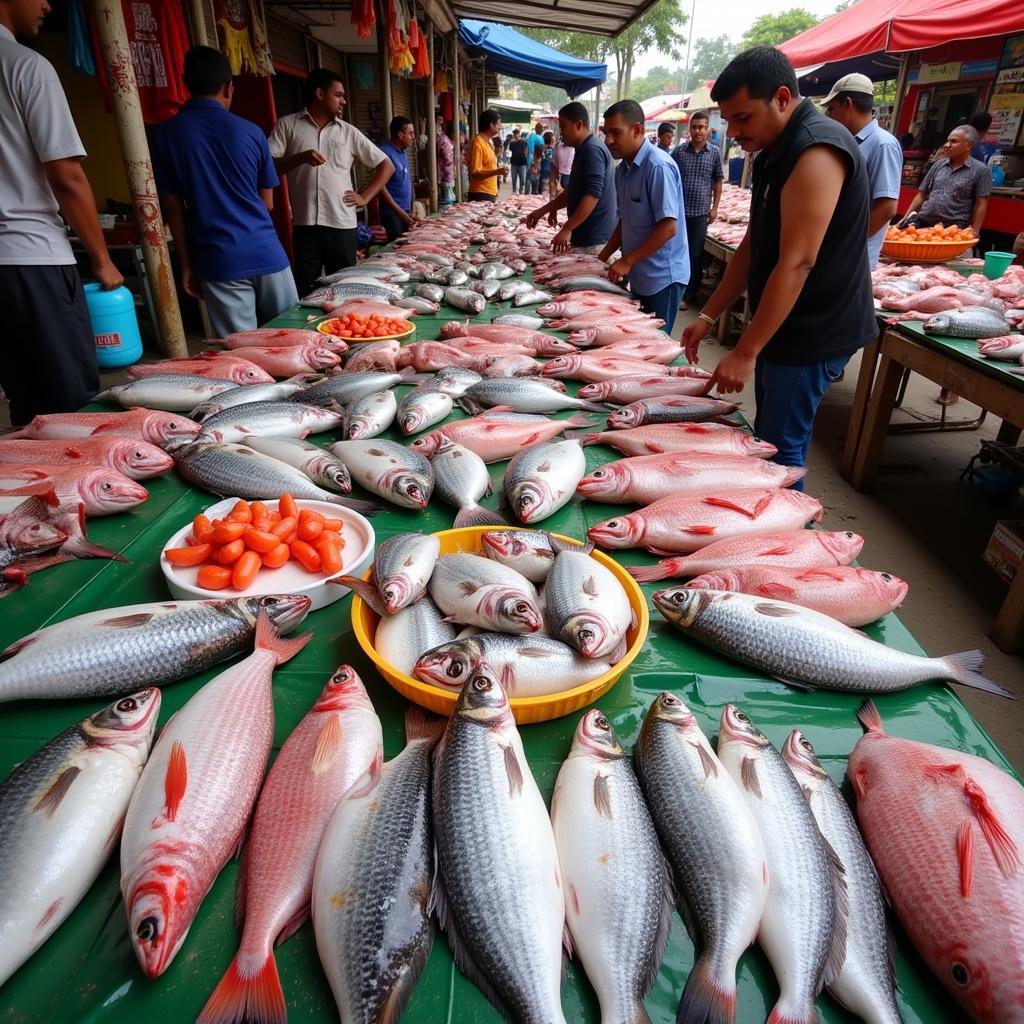African Countries Colonised by Spain: A Forgotten History
The history of African Countries Colonised By Spain is often overshadowed by the larger narratives of British and French colonialism. However, understanding this period is crucial to gaining a complete picture of Africa’s past and its lasting impact on the continent. This article will explore the extent of Spanish influence, the specific regions affected, and the legacy left behind.
Spanish Colonial Presence in Africa: An Overview
Spain’s colonial ambitions in Africa, while less expansive than other European powers, still left a significant mark. Their presence was primarily concentrated in North and West Africa, with territories including parts of present-day Morocco, Western Sahara, and Equatorial Guinea. Unlike other colonial powers, Spanish colonialism in Africa developed later, primarily in the 18th and 19th centuries.
The Canary Islands: A Stepping Stone to Africa
The Canary Islands, located off the coast of West Africa, served as a crucial launching pad for Spanish expansion into the continent. The islands were conquered by Spain in the 15th century and became a strategic base for trade and exploration.  The Canary Islands as a Spanish Colonial Base
The Canary Islands as a Spanish Colonial Base
Spanish Morocco and the Rif War
Spanish Morocco, encompassing the northern and southern zones of present-day Morocco, was a protectorate established in the early 20th century. The Rif War (1920-1926), a brutal conflict between Spain and the Berber tribes of the Rif Mountains, stands as a testament to the fierce resistance faced by Spanish colonial forces. The war exposed the brutality of colonial rule and highlighted the resilience of the local population.
Western Sahara: A Contested Legacy
Western Sahara, formerly known as Spanish Sahara, represents a complex and unresolved colonial legacy. Spain claimed the territory in the late 19th century but withdrew in 1975, leaving the region embroiled in a territorial dispute that continues to this day.
Equatorial Guinea: A Unique Case
Equatorial Guinea, consisting of the mainland Río Muni and the islands of Bioko and Annobón, is the only Spanish-speaking country in sub-Saharan Africa. Spanish colonization had a profound impact on the nation’s culture, language, and society. The country gained independence in 1968 but continues to grapple with the legacy of colonial rule.
What African Countries Were Colonized by Spain?
So, to answer the question directly, the African territories colonized by Spain were:
- Spanish Morocco (parts of present-day Morocco)
- Western Sahara
- Equatorial Guinea (including Río Muni, Bioko, and Annobón)
- The Canary Islands (considered part of Spain, but geographically located in Africa)
The Legacy of Spanish Colonialism
The impact of Spanish colonialism on Africa is multifaceted and continues to shape the affected regions today. From the cultural influence seen in language and architecture to the lingering political and economic challenges, the legacy is complex and often fraught with tension.
Cultural Impacts: Language and Religion
The Spanish language remains a significant influence in Equatorial Guinea, reflecting the enduring impact of colonial rule. The introduction of Christianity also played a role in shaping cultural and religious practices.
Economic and Political Consequences
Spanish colonialism, like other forms of European colonialism, had profound consequences on the economic and political development of the affected regions. The exploitation of resources and the imposition of colonial administrative structures had long-lasting implications for these territories.
The Canary Islands: Spanish or African?
While geographically part of Africa, the Canary Islands are considered an autonomous community of Spain. This unique status reflects the complex interplay of history, geography, and politics.
Quote from Dr. Fatima Mboup, Historian specializing in Spanish colonialism in Africa: “The impact of Spanish colonialism in Africa, though often overlooked, is a crucial piece of the continent’s history. Understanding this period helps us comprehend the complexities of present-day challenges and the ongoing struggle for self-determination.”
Quote from Professor Antonio Garcia, Anthropologist specializing in West African cultures: “The cultural exchanges between Spain and the African territories it colonized resulted in a unique blending of traditions, particularly visible in the music, art, and culinary practices of these regions.”
Conclusion
Understanding the history of African countries colonised by Spain is essential for a nuanced understanding of Africa’s past. While less extensive than the colonial endeavors of other European powers, Spanish colonialism left an undeniable mark on the continent. From the contested legacy of Western Sahara to the unique cultural landscape of Equatorial Guinea, the impact of Spanish rule continues to resonate today. By exploring this often-overlooked history, we can gain a more complete understanding of the forces that have shaped modern Africa.
FAQ
- What was the main focus of Spanish colonialism in Africa? Primarily trade, resource extraction, and strategic positioning.
- When did Spain begin colonizing Africa? While early exploration began earlier, significant colonization occurred in the 18th and 19th centuries.
- Why is Equatorial Guinea the only Spanish-speaking country in sub-Saharan Africa? It was a Spanish colony until 1968, retaining the language as a legacy.
- What is the current status of Western Sahara? It remains a disputed territory, with ongoing efforts to resolve its political future.
- What are some of the lasting cultural impacts of Spanish colonialism in Africa? Influence on language, religion, and architecture.
- Where can I learn more about this topic? Explore academic resources, historical archives, and cultural institutions focusing on African and Spanish history.
- How did the Rif War impact Spanish colonialism in Morocco? It exposed the brutality of colonial rule and fueled resistance movements.
Need support? Contact us 24/7: Phone: +255768904061, Email: kaka.mag@gmail.com, Address: Mbarali DC Mawindi, Kangaga, Tanzania.
For further information, explore related articles on our website about the individual histories of Morocco, Western Sahara, and Equatorial Guinea. We also have resources detailing the impact of colonialism on African art, music, and cuisine.

